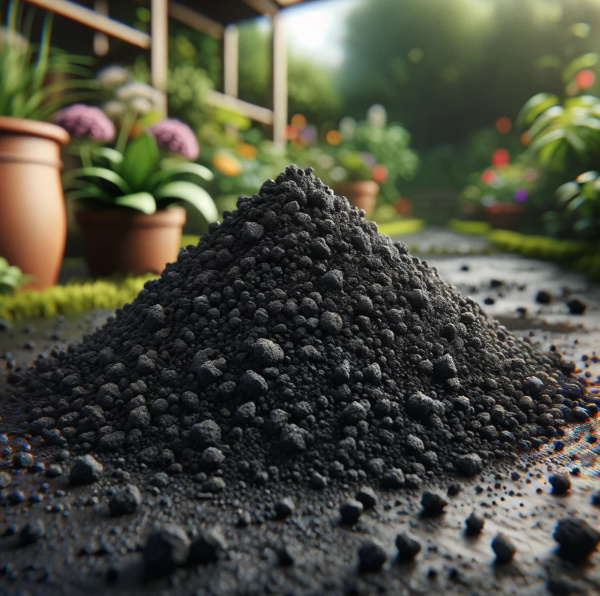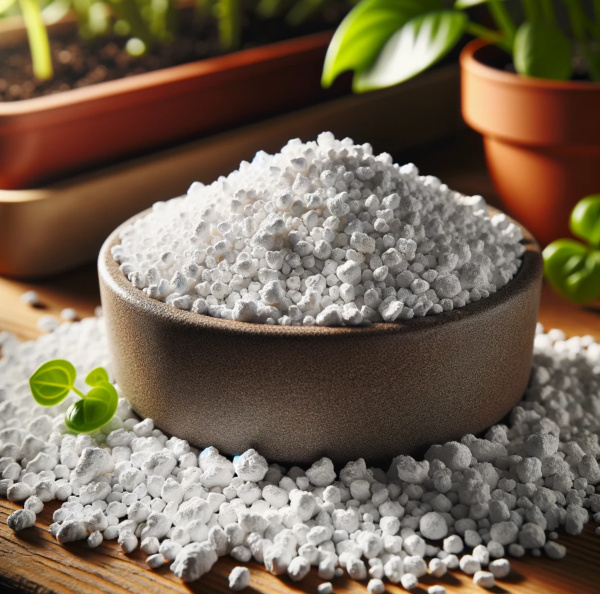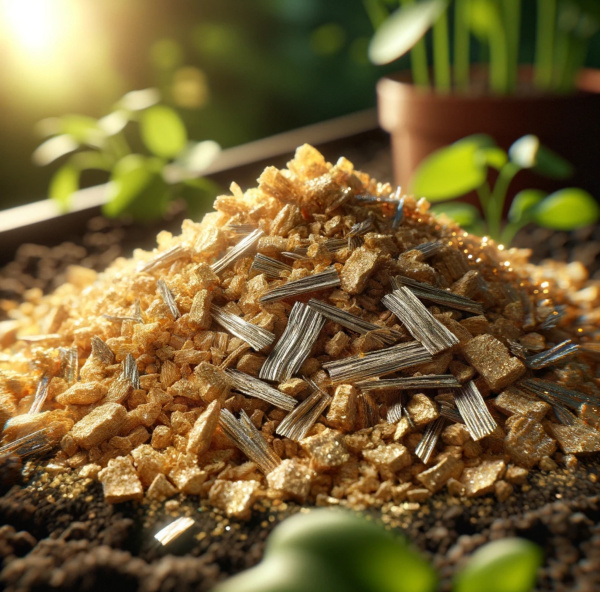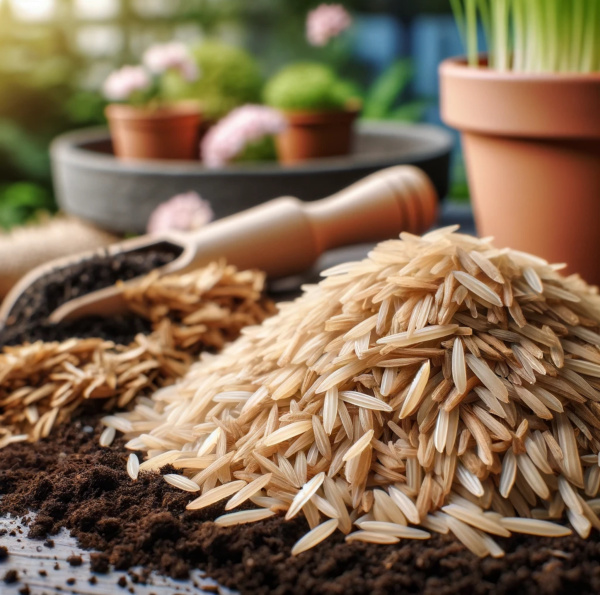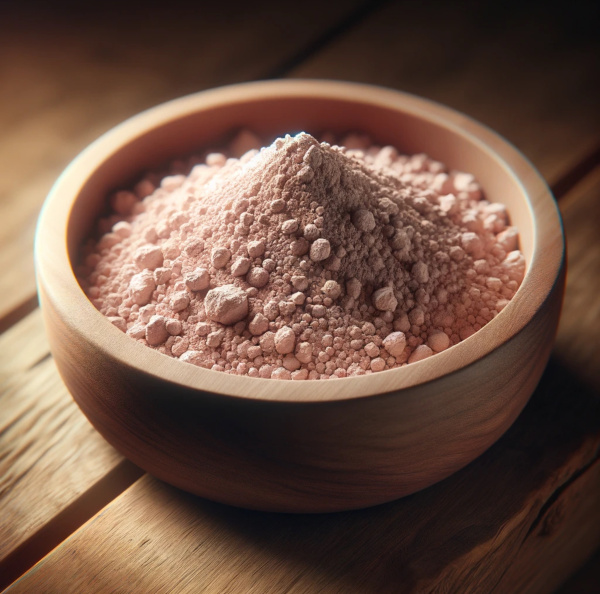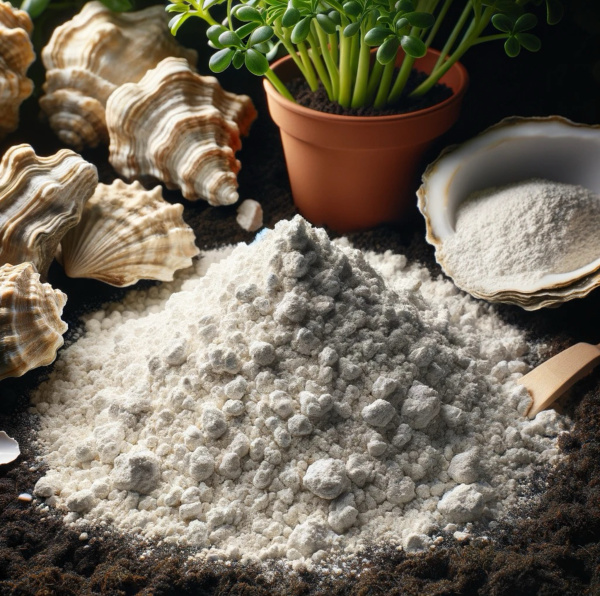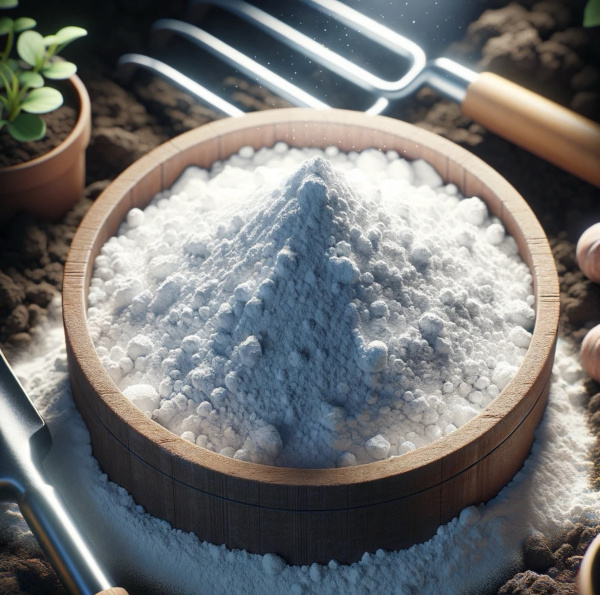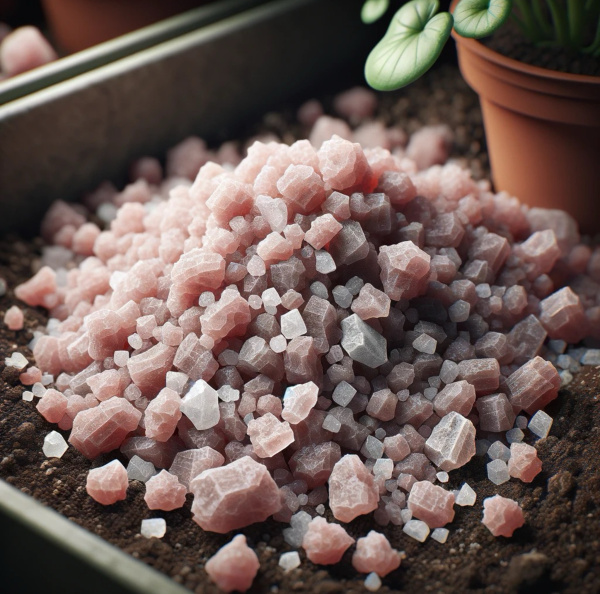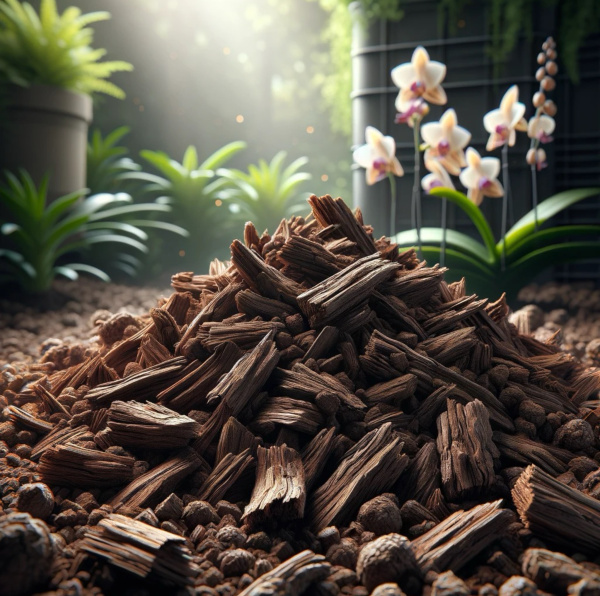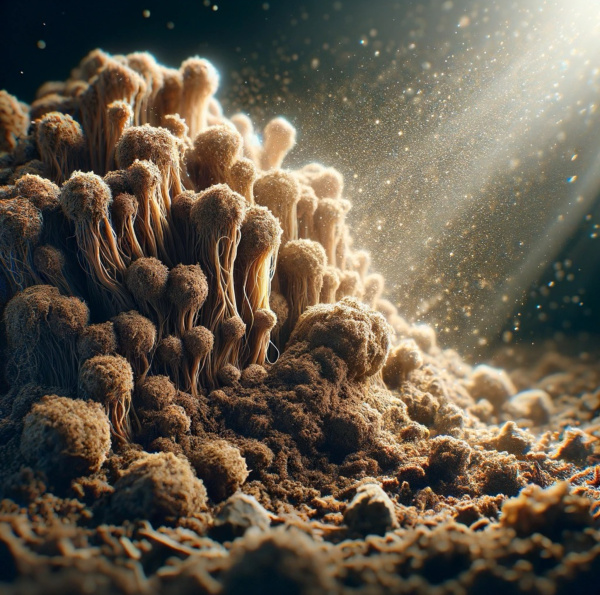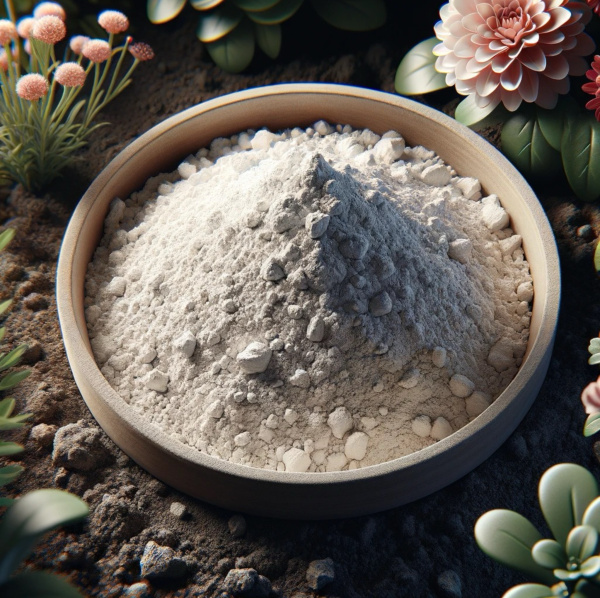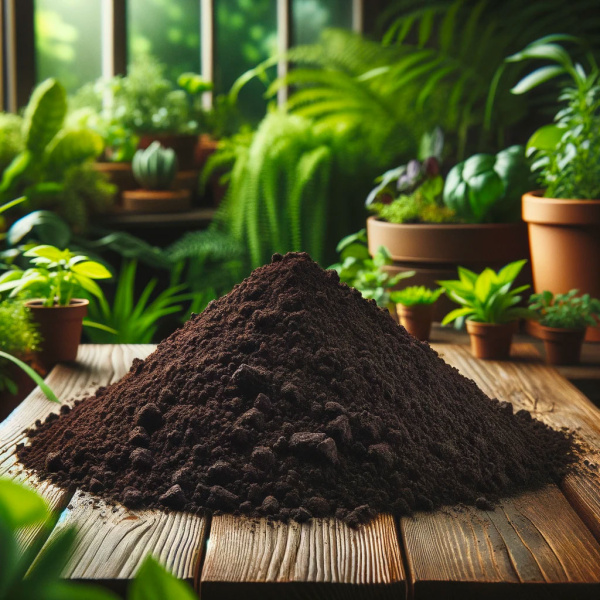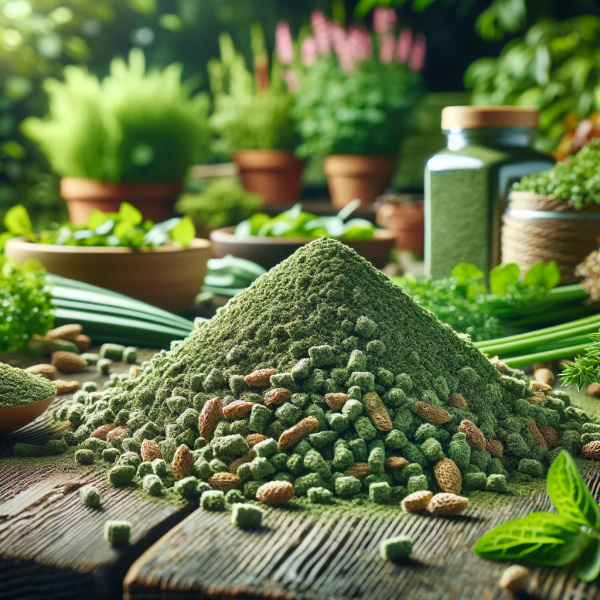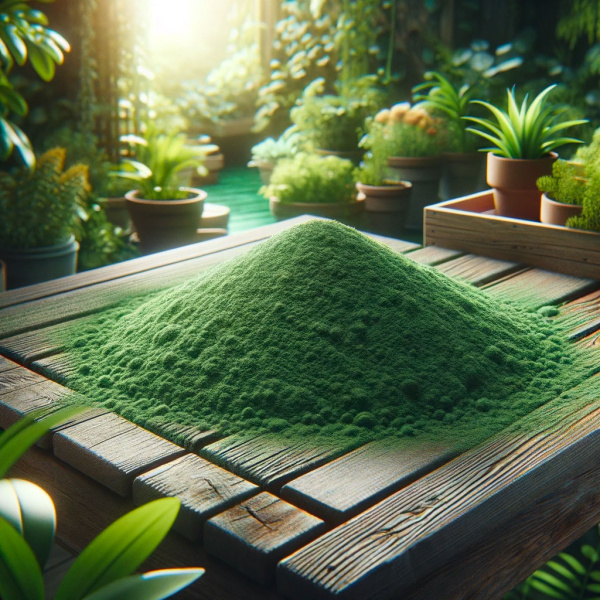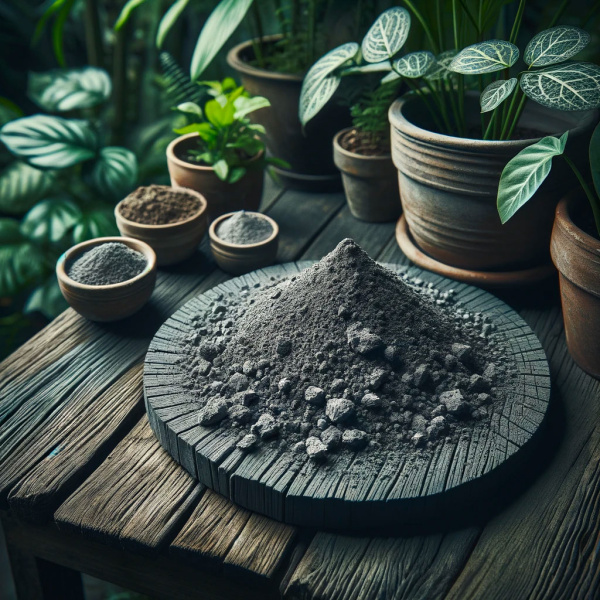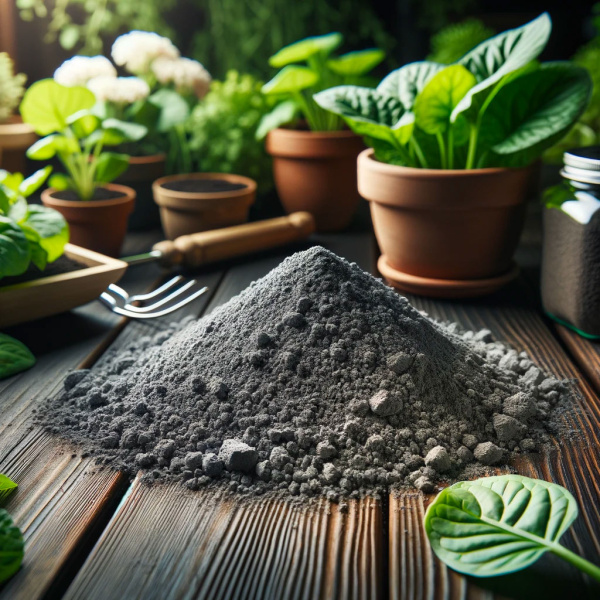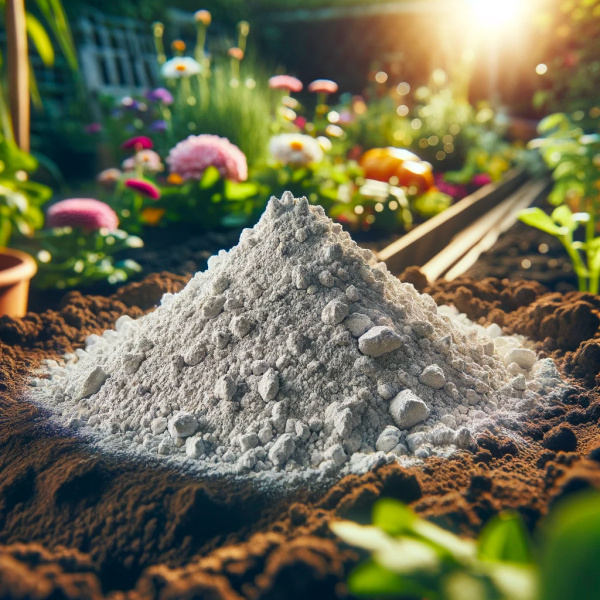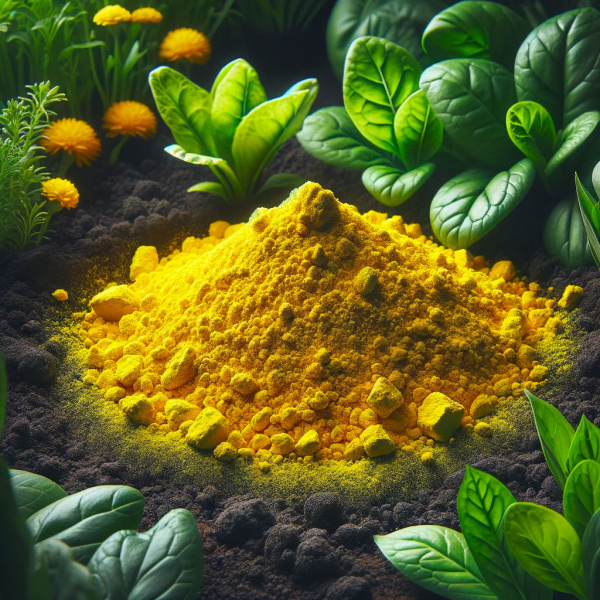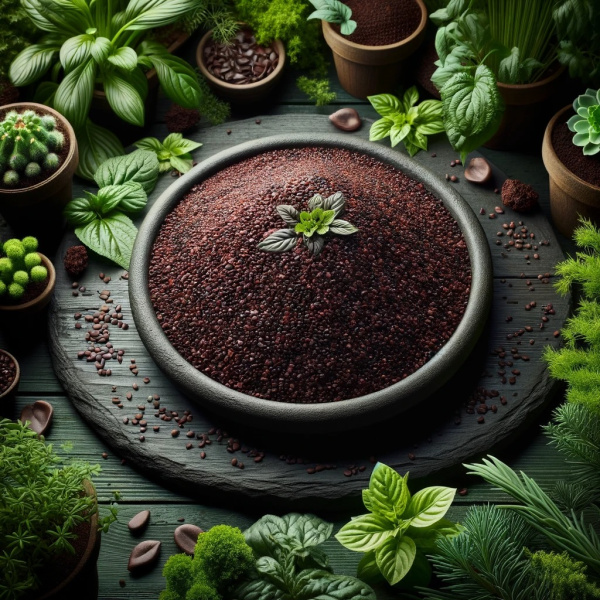
Green Growth Soil Mix
Our Essential Super Soil Ingredients
Unveiling the Secrets of a Perfect Garden Soil & Potting Mix
Welcome to the world of gardening, where the secret to lush, vibrant plants lies beneath the surface: the soil mix. In this post, we delve into an extraordinary soil blend that combines twelve+ essential ingredients, each playing a pivotal role in nurturing plant life.
This unique super soil mix is more than just dirt; it's a carefully crafted ecosystem tailored to provide optimal growth conditions for a wide variety of plants.
Whether you're a seasoned gardener or a budding green thumb, understanding what goes into this soil mix and why each component is crucial can transform your gardening experience.
Join us as we explore the benefits of each ingredient, unveiling how they work together to create the perfect environment for your plants to thrive.
1.) Coco Coir
The Foundation of Healthy Soil
Coco Coir, the cornerstone of our soil mix, is derived from the husk of coconuts, a renewable resource that underscores our commitment to sustainability. This fibrous material is a game-changer in the gardening world, known for its remarkable ability to retain moisture while still providing excellent drainage. Unlike traditional peat moss, coco coir boasts a near-neutral pH level, making it suitable for a wide range of plants.
But why is coco coir so crucial for plant health? Its structure is key. The coir fibers create air pockets within the soil, promoting oxygenation of the root zone – an essential factor for healthy root development. Moreover, its moisture retention capabilities mean that water is readily available for the roots, but without the risk of waterlogging, thanks to its inherent drainage properties.
Coco coir's benefits extend beyond its physical attributes. It serves as a stable base for our soil mix, neither compacting over time nor decomposing rapidly, ensuring a consistent environment for plants' roots. Its sustainability is another plus – coco coir is a byproduct of the coconut industry, making it an eco-friendly alternative to peat moss, which requires disruptive harvesting from peat bogs. In essence, coco coir provides a solid, sustainable foundation for our soil mix, ensuring your plants have the best start in their growth journey.
2.) Worm Castings
Nature's Organic Fertilizer
Worm castings, often hailed as black gold in gardening circles, are the next crucial component of our soil mix. These are not just any ordinary soil amendment; they are the byproduct of earthworm digestion, turning organic matter into a powerhouse of nutrients and beneficial microbes.
Rich in nitrogen, phosphorus, and potassium – the key macronutrients required for plant growth – worm castings release these nutrients slowly, making them readily available for plant uptake over an extended period. This slow-release property prevents the risk of nutrient burn, a common problem with synthetic fertilizers.
But the magic of worm castings doesn't stop at nutrients. They are teeming with beneficial microbes that play a vital role in maintaining healthy soil ecology. These microbes aid in breaking down organic matter, making nutrients more accessible to plants. They also help in suppressing soil-borne diseases and promoting healthy root development.
Another significant benefit of worm castings is their ability to improve soil structure. They add to the soil's porosity, enhancing air and water movement, and consequently, root growth and health. Moreover, their use contributes to the overall sustainability of the garden, as worm castings are a natural, renewable resource that supports the ethos of organic gardening.
Incorporating worm castings into our soil mix not only feeds the plants but also nurtures the soil, creating a living, breathing substrate that fosters a vibrant, thriving garden.
3.) Perlite
The Key to Perfect Drainage
Perlite, the third essential ingredient in our soil mix, is a form of natural volcanic glass. It's known for its remarkable ability to improve soil drainage and aeration, which are critical for healthy root systems. When heated, perlite expands, creating a lightweight, porous material that is ideal for gardening applications.
The inclusion of perlite in the soil mix addresses one of the most common challenges gardeners face: overwatering and soil compaction. Its porous nature allows excess water to drain away quickly, reducing the risk of root rot – a common issue that can devastate plants. Simultaneously, the air pockets created by perlite ensure that roots receive adequate oxygen, essential for their respiration and overall health.
Perlite's neutral pH is another significant advantage, as it does not alter the soil's acidity or alkalinity. This feature makes our soil mix suitable for a diverse range of plants. Additionally, perlite is sterile, meaning it's free from pathogens and weed seeds, safeguarding your plants against potential diseases and unwanted growth.
By incorporating perlite into our soil mix, we ensure that your plants are growing in an environment that balances moisture retention with excellent drainage, promoting robust and healthy root development. This ingredient is particularly beneficial for plants prone to root diseases and those requiring well-drained soil conditions.
4.) Vermiculite
Retaining Moisture and Nutrients
Vermiculite, a naturally occurring mineral, plays a pivotal role in our soil mix. Like perlite, vermiculite is expanded through heat, but it boasts different properties. Its golden-brown flakes are highly effective in retaining moisture and nutrients, slowly releasing them to plant roots as needed.
One of the most valuable characteristics of vermiculite is its cation exchange capacity (CEC). This property allows vermiculite to hold onto essential nutrients like potassium, calcium, and magnesium, preventing them from washing away during watering. Instead, these nutrients are gradually released, providing a consistent supply to the roots. This slow-release mechanism is particularly beneficial during the critical growth phases of plants.
Vermiculite also complements the drainage and aeration properties of perlite. While perlite ensures excess water drains away, vermiculite retains adequate moisture and creates a buffer against both under and over-watering. This balance is crucial for consistent soil moisture, particularly important for seedlings and plants with delicate root systems.
Moreover, vermiculite is inert, pH-neutral, and sterile, making it a safe and reliable choice for any gardening project. It enhances the overall structure of the soil mix, creating an ideal environment that encourages robust root growth and overall plant health.
By incorporating vermiculite, our soil mix caters to a wide range of plant needs, ensuring that moisture and essential nutrients are available in the right amounts and at the right time.
5.) Rice Hulls
The Organic Way to Improve Soil Structure
Rice hulls, the protective coverings of rice grains, are a natural and sustainable addition to our soil mix. These hulls are often considered agricultural waste, but in the realm of gardening, they're a valuable resource for improving soil structure and adding organic matter.
One of the key benefits of rice hulls is their ability to enhance soil aeration. They create tiny air pockets within the soil, allowing roots to breathe more efficiently and promoting healthier growth. This improved aeration is especially beneficial for plants susceptible to root diseases that thrive in compacted, poorly aerated soils.
In addition to aeration, rice hulls contribute to better drainage. They prevent the soil from becoming too dense or waterlogged, which is crucial for plants that prefer drier conditions. Over time, as rice hulls decompose, they add organic matter to the soil. This gradual breakdown enriches the soil with nutrients and encourages the activity of beneficial microorganisms.
Rice hulls also have a relatively neutral pH, making them suitable for a wide range of plants. Their lightweight nature doesn't significantly alter the weight of the soil mix, making it ideal for containers and raised beds.
By integrating rice hulls into our mix, we enhance its physical properties, promoting a balanced environment for plant roots. This ingredient ensures that the soil remains loose and breathable, fostering robust plant growth and resilience.
6.) Azomite
The Mineral Powerhouse
Azomite, a unique natural mineral product, is an integral part of our soil mix. Sourced from ancient volcanic ash deposits, Azomite is renowned for its rich mineral content, boasting over 70 trace minerals and elements. These micro-nutrients are often missing in modern agricultural soils and are crucial for the overall health and vitality of plants.
The inclusion of Azomite in our soil mix serves several purposes. Firstly, it replenishes minerals that have been depleted from the soil, ensuring that plants have access to a broad spectrum of essential nutrients. This diverse mineral content is key to promoting healthy plant growth, improving root systems, and enhancing the nutritional value of fruits and vegetables.
Moreover, Azomite's trace elements play a critical role in various plant processes. For example, elements like boron, copper, and manganese are vital for plant cell wall formation, enzyme functions, and photosynthesis. The presence of these minerals in the right amounts can significantly impact plant health, leading to stronger, more resilient plants.
Azomite also aids in improving soil quality. Its fine, powdery texture helps to loosen compacted soils, enhancing soil structure and water penetration. This improvement in soil texture benefits root development and nutrient uptake.
Incorporating Azomite into our soil mix ensures that your plants receive a well-rounded diet of micro-nutrients, often overlooked but essential for optimal growth and health. This component is particularly beneficial for gardeners looking to grow nutrient-rich produce and maintain balanced, fertile soils.
7.) Feather Meal
A Slow-Release Nitrogen Source
Feather Meal, a byproduct of the poultry industry, is an exceptional addition to our soil mix, primarily for its nitrogen content. Rich in this essential nutrient, feather meal is a slow-release fertilizer, providing a steady supply of nitrogen over time, which is crucial for plant growth, particularly for green, leafy plants and heavy feeders.
The slow-release nature of feather meal is particularly advantageous. It minimizes the risk of nitrogen burn, a common issue with fast-acting synthetic fertilizers, and provides a consistent nutrient supply over a longer period. This steady nourishment supports continuous, healthy growth throughout the growing season.
Nitrogen is vital for chlorophyll production, the green pigment in plants responsible for photosynthesis. Adequate nitrogen ensures lush, vigorous foliage and plays a critical role in overall plant health and productivity. Feather meal, being an organic source, not only feeds the plants but also contributes to the soil's organic matter, improving soil structure and promoting the activity of beneficial microorganisms.
Additionally, as an animal-derived product, feather meal adds another layer of nutrient diversity to our soil mix. It breaks down more slowly than other organic matter, ensuring long-term soil fertility and health.
Incorporating feather meal into our soil mix addresses the high nitrogen demands of many plants, especially during their peak growth phases, ensuring that your garden remains vibrant and productive.
8.) Kelp Meal
The Ocean's Gift to Gardening
Kelp, a type of seaweed harvested from the ocean, is the eighth jewel in our soil mix crown. This marine plant is a treasure trove of nutrients, including micronutrients, amino acids, and natural growth hormones, making it an invaluable component of our soil mix.
The inclusion of kelp brings a host of benefits. It is rich in trace elements and minerals like iodine, magnesium, and potassium, which are often lacking in conventional soil mixes. These nutrients are essential for various plant functions, including growth regulation and disease resistance.
Kelp's natural growth hormones, like cytokinins, gibberellins, and auxins, are particularly beneficial. They stimulate root development, enhance cell division and elongation, and can even increase flowering and fruiting. This hormonal boost can lead to more robust, resilient plants, capable of withstanding environmental stresses like drought, frost, and pests.
Moreover, kelp improves soil health by enhancing microbial activity. These microbes play a crucial role in nutrient cycling, breaking down organic matter, and improving soil structure. Kelp also aids in moisture retention, ensuring that plants have access to water when needed.
By adding kelp to our soil mix, we ensure that plants not only receive a wide range of nutrients but also benefit from natural growth stimulants, enhancing their overall growth and vigor. Kelp is particularly beneficial for gardeners aiming to grow organically and sustainably, as it's a renewable, natural resource that brings the richness of the ocean to your garden.
9.) Horticultural Biochar Charcoal
A Sustainable Soil Enhancer and its Inoculation with Worm Tea
Biochar, a form of charcoal used in agriculture, stands out as a revolutionary component in sustainable gardening. Derived through pyrolysis – heating organic material in an oxygen-deprived environment – biochar is a stable carbon form made from agricultural residues. Its integration into soil brings manifold long-lasting benefits.
The primary benefit of biochar lies in its ability to enhance soil fertility. Its porous structure not only houses beneficial soil microbes that are crucial for nutrient cycling but also boosts the soil’s nutrient retention capacity. This reduces the leaching of nutrients and lessens the dependence on chemical fertilizers.
Additionally, biochar is celebrated for its exceptional water retention qualities. It aids in preserving moisture within the soil, providing a sustained water supply to plants, a boon especially in areas prone to drought. This characteristic also helps maintain soil structure, prevent compaction, and encourage healthy root development.
Environmentally, biochar is a potent tool for carbon sequestration. Transforming agricultural waste into a stable carbon and incorporating it into the soil locks carbon away, diminishing greenhouse gas emissions. Thus, biochar is not just a soil enhancer but also an ally in the fight against climate change.
Before adding biochar to soil, it’s beneficial to inoculate it with worm tea. Soaking biochar in worm tea, rich in beneficial microbes and nutrients, primes it for soil integration. This inoculation enriches biochar, ensuring it contributes positively from the outset and doesn’t initially absorb nutrients away from plants.
In your garden, biochar acts as a long-term enhancer. Unlike other organic amendments that decompose, biochar remains in the soil for centuries, consistently improving soil health.
10.) Oyster Shells
Natural pH Balancer and Calcium Source
Oyster Shells, often ground into a fine powder (flour), are a natural way to adjust soil pH and provide a slow-release source of calcium. Rich in calcium carbonate, oyster shells are particularly beneficial for sweetening acidic soils, gradually raising the pH to suit plants that thrive in more alkaline conditions.
The calcium released from oyster shells is vital for plant health. It plays a crucial role in cell wall development, root growth, and nutrient uptake. Calcium also helps plants combat diseases and withstand environmental stresses. The slow release of calcium ensures a steady supply over time, supporting consistent plant growth.
Additionally, oyster shells improve soil texture. They add grittiness to the soil, which can enhance drainage and aeration, especially beneficial in compact or clay-heavy soils.
By adding oyster shells to our soil mix, we cater to plants that prefer a higher pH while providing an essential nutrient that bolsters plant health and resilience. This ingredient is especially useful for gardeners looking to naturally correct acidic soil conditions and promote robust plant growth.
11.) Gypsum
Soil Structure and Nutrient Supplier
Gypsum, a soft sulfate mineral, is a dual-purpose soil amendment known for its ability to improve soil structure and provide essential nutrients. It offers calcium and sulfur, both crucial for plant growth, without affecting soil pH. This makes gypsum particularly valuable in maintaining the pH balance of your soil while still contributing necessary nutrients.
Calcium from gypsum strengthens plant cell walls, enhancing the plant’s structural integrity and resistance to pests and diseases. Sulfur, a key component of certain amino acids and vitamins, supports plant growth and development. Gypsum’s role in providing these nutrients promotes healthy, vibrant, and productive plants.
One of gypsum’s most notable benefits is its ability to improve the physical structure of heavy clay soils. It helps loosen and aerate compacted soils, facilitating better root penetration and water infiltration. This can significantly enhance root development and reduce waterlogging, a common problem in clay soils.
Incorporating gypsum into our soil mix means that plants will not only receive a steady supply of essential nutrients but also benefit from improved soil conditions, especially in areas with heavy or compacted soils.
12.) Langbeinite
A Triple-Nutrient Boost
Langbeinite, also known as Sul-Po-Mag, is a powerhouse of essential nutrients, crucial for healthy plant growth. This naturally occurring mineral provides three vital nutrients: potassium, magnesium, and sulfur, all in a readily available form for plants. Potassium is key for overall plant health, aiding in water regulation, photosynthesis, and enzyme activation. Magnesium, a central component of chlorophyll, is essential for photosynthesis and helps in the creation of sugars and carbohydrates. Sulfur, often overlooked, plays a critical role in the formation of proteins, enzymes, and vitamins.
Langbeinite’s solubility ensures that these nutrients are quickly accessible to plant roots, making it an excellent choice for fast-growing plants or those showing signs of nutrient deficiencies. Its balanced nutrient profile supports flowering, fruiting, and overall vigor in plants.
Particularly beneficial in soils lacking in magnesium or potassium, langbeinite is a versatile amendment suitable for a wide range of soil types and plants. Its inclusion in our soil mix ensures a well-rounded nutrient supply, catering to the diverse needs of various plants in your garden.
Bonus I: Orchid Bark
Enhancing Aeration and Mimicking Natural Habitats
Orchid bark is a specialized, highly beneficial component in gardening, particularly revered for enhancing soil aeration and drainage. Derived from fir or pine trees, this chunky, organic material is key to replicating the natural growing conditions of certain plant types, especially epiphytes like orchids, bromeliads, and anthuriums.
The primary advantage of orchid bark lies in its ability to create an open, airy soil structure. This is crucial for plants that thrive in well-draining environments and need to avoid waterlogged roots. The sizable pieces of bark create gaps within the soil, allowing air to circulate freely around the roots, thus fostering healthy root development. This enhanced aeration is especially beneficial for plants that are susceptible to root diseases commonly caused by poor air circulation and excessive moisture.
Orchid bark also contributes to improved drainage in potting mixes. It ensures that excess water drains away quickly, maintaining the ideal moisture balance for plants that prefer drier conditions. This characteristic makes it an excellent amendment for creating soil mixes tailored to plants that naturally grow on trees or in rocky, well-drained habitats.
In addition to its physical benefits, orchid bark decomposes slowly, ensuring that it maintains its structure for a longer period compared to finer organic materials. This slow decomposition process also provides a gradual release of nutrients as the bark breaks down, contributing to sustained plant health.
Incorporating orchid bark into our soil mix brings us closer to mimicking the natural ecosystems that many exotic and epiphytic plants call home. It not only caters to the unique requirements of these plants but also adds an element of natural diversity to our gardening practices.
Bonus II: Mycorrhizae
Plant Root's Best Friend
Mycorrhizae, a type of beneficial fungi, play a crucial role in enhancing plant health, particularly at the roots. This natural soil amendment forms a symbiotic relationship with plant roots, extending their reach far beyond their physical limits. This extended root system dramatically increases the plant’s ability to absorb water and essential nutrients, particularly phosphorus, which is vital for energy transfer and photosynthesis.
The presence of mycorrhizae in the soil helps plants in several ways. Firstly, it boosts nutrient uptake, enabling plants to access more of the nutrients they need to thrive. This is especially beneficial in nutrient-poor soils or for plants with high nutritional demands. Secondly, mycorrhizae improve soil structure. They create a more aerated and porous soil environment, which enhances root penetration and overall root health.
Furthermore, plants with mycorrhizal associations tend to be more resilient against environmental stresses such as drought and soil salinity. They also show enhanced resistance to certain root pathogens and diseases. This is particularly important for young plants or transplants, helping them establish more quickly and successfully in new environments.
By incorporating mycorrhizae into our soil mix, we’re not just feeding plants; we’re creating a dynamic, symbiotic environment that fosters healthier, more vigorous growth and a stronger, more resilient garden.
Bonus III: Bone Meal
Foundation for Strong Roots and Blooms
Bone Meal, a tried-and-true organic fertilizer, is renowned for its high phosphorus content, crucial for root development and flowering in plants. Derived from finely ground animal bones, this amendment also provides calcium, an essential nutrient for strengthening plant cell walls and aiding in plant structure and health.
The primary benefit of bone meal is its role in encouraging robust root systems. Strong roots are the foundation of healthy plants, enabling better water and nutrient uptake, and greater stability. This is especially vital for young plants and transplants, ensuring they establish well in their new environment.
For flowering plants, bone meal is a boon. Phosphorus is a key component in the formation of flowers and fruits. By slowly releasing phosphorus, bone meal supports the development of abundant and vibrant blooms, and in the case of fruiting plants, it contributes to the production of high-quality fruits.
Bone meal’s slow-release properties are particularly beneficial. Unlike synthetic fertilizers that provide a quick nutrient burst, bone meal breaks down gradually over time. This slow decomposition ensures a steady, long-term supply of nutrients, aligning well with the natural growth cycle of plants.
Adding bone meal to our soil mix caters to plants at critical growth stages – establishing roots, flowering, and fruiting. It’s especially useful in blends designed for bulbs, flowering plants, and edible gardens, where root health and blooming are top priorities. Bone meal, thus, is not just a fertilizer; it’s a foundational element for a thriving, blossoming garden.
Bonus IV: Humic Acid
The Organic Enhancer
Humic Acid, a vital component of our soil amendment regimen, is derived from the natural decomposition of plant and animal materials. This organic substance is crucial in enhancing soil fertility and plant health. Rich in a complex array of organic molecules, Humic Acid is a comprehensive soil conditioner, offering many benefits for both soil and plants.
The introduction of Humic Acid into our soil mix is multifaceted. It significantly improves soil structure by increasing soil aggregation and enhancing water retention and air circulation. This improvement in soil texture is instrumental in supporting robust root development and efficient nutrient uptake by plants.
Furthermore, Humic Acid acts as a natural chelator, binding to nutrients in the soil and making them more accessible to plant roots. This process ensures that plants have a steady supply of essential nutrients and reduces nutrient leaching, promoting a more sustainable use of fertilizers.
The benefits of Humic Acid extend to stimulating plant growth and vitality. It enhances seed germination rates, encourages vigorous root growth, and increases the uptake of nutrients. Plants treated with Humic Acid are often more resilient to stress, including drought and disease, thanks to improved overall health and vigor.
In addition to its direct benefits to plants, Humic Acid promotes beneficial microbial activity in the soil. These microorganisms play a critical role in nutrient cycling, breaking down organic matter into forms that plants can easily absorb. By fostering a healthy microbial ecosystem, Humic Acid ensures plants can access a steady stream of bioavailable nutrients.
Incorporating Humic Acid into your soil mix is a natural and effective way to boost plant growth, enhance soil fertility, and promote a more vibrant and resilient garden. This organic soil enhancer is especially valuable for gardeners aiming to cultivate healthy, productive plants while maintaining the ecological balance of their garden soil.
Bonus V: Alfalfa Meal
The Green Plant Super Food
Alfalfa Meal, a cornerstone in our organic gardening practices, is derived from ground alfalfa plants, a legume known for its rich nutrient content and soil conditioning properties. This natural fertilizer is an excellent source of nitrogen, along with other essential nutrients like phosphorus, potassium, and a range of vitamins and minerals that support healthy plant growth. Its gentle, slow-release nature makes it an ideal choice for enriching garden soils without the risk of nutrient burn associated with synthetic fertilizers.
Incorporating Alfalfa Meal into our soil mix serves multiple benefits. It not only provides a balanced supply of essential nutrients to plants but also contributes to soil health. Alfalfa Meal is rich in organic matter, which improves soil structure by increasing soil aeration and water retention capabilities. This enhancement of the soil's physical qualities supports robust root development and efficient nutrient uptake, laying the foundation for vigorous plant growth.
Moreover, Alfalfa Meal acts as a natural stimulant for beneficial soil microorganisms, including nitrogen-fixing bacteria. These microorganisms play a crucial role in converting soil nutrients into forms that plants can readily absorb, further enhancing soil fertility. The presence of triacontanol, a natural growth hormone in Alfalfa Meal, stimulates root development and plant growth, offering an added boost to the overall vitality and productivity of the garden.
Another advantage of Alfalfa Meal is its role in promoting sustainable gardening practices. As a renewable plant-based resource, it aligns with environmentally friendly gardening, contributing to a closed-loop system by recycling plant nutrients back into the soil. This approach not only reduces dependency on chemical fertilizers but also supports the health of the broader ecosystem.
Incorporating Alfalfa Meal into your garden soil is a wise choice for gardeners seeking to nourish their plants with a balanced, organic, and sustainable source of nutrients. Its multifaceted benefits to soil and plant health make it particularly valuable for those aiming to enhance the vigor of their garden, ensure the production of nutrient-rich produce, and foster an environment where both plants and beneficial soil organisms can thrive.
Bonus VI: Green Sand
The Time-Tested Soil Enhancer
Green Sand, an age-old favorite among gardeners, is a naturally occurring mineral derived from ancient seabed deposits. Rich in glauconite, a source of iron, potassium, magnesium, and other trace minerals, Green Sand serves as a long-lasting soil amendment that gently releases nutrients over time. Its unique composition not only feeds plants but also improves soil structure and moisture retention, making it an invaluable addition to any garden soil mix.
The incorporation of Green Sand into our gardening practices brings numerous benefits. It acts as a slow-release fertilizer, providing a steady supply of essential nutrients that support healthy plant growth. This gradual nourishment ensures that plants receive a consistent level of nutrition throughout the growing season, reducing the risk of over-fertilization and promoting a more natural growth pattern.
Beyond its nutritional offerings, Green Sand enhances soil quality. It improves the physical properties of the soil, increasing its ability to retain water and nutrients. This is particularly beneficial in sandy soils, where water and nutrients can easily leach away, and in clay soils, where compaction can limit water infiltration and root growth. By improving soil structure, Green Sand facilitates better root development and nutrient uptake, key factors in the success of any garden.
Furthermore, Green Sand fosters a healthier soil ecosystem. Its mineral content supports the growth of beneficial microorganisms, which play a crucial role in organic matter decomposition and nutrient cycling. These microbial activities are essential for converting organic materials and minerals into forms that plant roots can absorb, enhancing the overall fertility of the soil.
One of the most appealing aspects of Green Sand is its sustainability. As a natural, non-toxic mineral, it poses no harm to the environment, making it an excellent choice for organic gardening. Its longevity as a soil amendment means that it does not need to be applied as frequently as other fertilizers, reducing labor and input costs over time.
Incorporating Green Sand into your soil mix is a wise investment in the long-term health and productivity of your garden. It offers a sustainable, efficient, and effective way to enhance soil fertility, improve plant growth, and ensure a bountiful harvest. Green Sand is particularly suited for gardeners who value organic practices and are committed to nurturing their soil as much as their plants.
Bonus VII: Rock Phosphate
The Phosphorus Powerhouse
Rock Phosphate, a key player in our soil enrichment arsenal, is a naturally occurring mineral that provides a concentrated source of phosphorus, essential for plant energy transfer, photosynthesis, and nutrient transport. Unlike synthetic phosphorus fertilizers, Rock Phosphate releases phosphorus slowly into the soil, making it available to plants over several growing seasons. This slow-release property ensures a long-term supply of this crucial nutrient, promoting sustainable growth and blooming over time.
Incorporating Rock Phosphate into our soil mix brings a wealth of benefits. It addresses the phosphorus deficiency in soils, a common issue that can stunt plant growth, fruit production, and root development. By supplying a steady amount of phosphorus, Rock Phosphate encourages vigorous plant growth, enhances the quality of fruits and flowers, and supports developing a strong root system, which is crucial for absorbing water and nutrients.
Moreover, Rock Phosphate's slow-release mechanism helps prevent phosphorus runoff into waterways, a significant environmental concern associated with synthetic fertilizers. This property makes Rock Phosphate an environmentally friendly choice, aligning with organic gardening principles and supporting the health of the surrounding ecosystem.
Beyond its nutritional benefits, Rock Phosphate also contributes to soil health. It can help buffer soil pH and improve its microbial activity. Beneficial soil microbes, including those that form symbiotic relationships with plant roots, thrive in the presence of phosphorus, facilitating nutrient uptake and improving plant resilience against diseases.
Rock Phosphate is particularly valuable in organic farming and gardening, where maintaining soil fertility without synthetic inputs is a priority. It is ideally suited for use in vegetable gardens, flower beds, and around fruit trees and bushes, where its long-lasting effects can support multiple seasons of healthy growth.
Incorporating Rock Phosphate into your garden soil is a strategic move for those looking to enhance plant vitality and yield while committing to sustainable and organic gardening practices. Its natural, slow-release phosphorus nurtures plant growth and supports soil health and environmental well-being, making it a cornerstone amendment for conscientious gardeners aiming for bountiful and vibrant gardens.
Bonus VII: Wood Ash
The Alkaline Amendment & Conditioner
Wood Ash, a natural byproduct of wood burning, emerges as a valuable soil amendment in our gardening toolkit. Rich in potassium, calcium, and other trace minerals, Wood Ash has been used for centuries to enrich garden soils, offering a sustainable way to recycle nutrients back into the earth. Its alkaline nature can also help to neutralize acidic soils, making it an excellent choice for adjusting soil pH and improving the availability of nutrients to plants.
Incorporating Wood Ash into our soil mix serves several key purposes. It provides a gentle source of potassium, essential for plant growth, water regulation, and disease resistance. This nutrient plays a crucial role in developing fruits and flowers, promoting higher yields and quality in the garden. Additionally, the calcium content of Wood Ash is beneficial for plant cell wall strength and development, contributing to overall plant health.
The application of Wood Ash can significantly improve soil fertility, especially in acidic soils where nutrient availability is limited. By raising the soil pH, Wood Ash makes existing nutrients more accessible to plants, enhancing their growth and vitality. This adjustment to soil pH is particularly beneficial for vegetables and flowers that prefer neutral to slightly alkaline soil conditions.
Moreover, Wood Ash contains various trace minerals that contribute to the nutritional profile of the soil. These micronutrients, often overlooked, are vital for plant enzymatic functions and overall health. Incorporating Wood Ash into the soil ensures that plants can access a broad spectrum of essential nutrients, supporting a balanced and productive garden ecosystem.
Wood Ash is also an environmentally friendly option for soil amendment. Utilizing this natural byproduct promotes a cycle of sustainability, reducing waste while enhancing garden health. However, using Wood Ash judiciously is important, as its alkaline nature can impact soil pH significantly. It is best applied in moderation and tested on soil pH to ensure optimal benefits without adverse effects.
Incorporating Wood Ash into your garden soil is a wise choice for gardeners looking to enrich their soil naturally and sustainably. Its benefits extend from nutrient supply to soil pH adjustment, supporting a healthy, vibrant, and productive garden. Wood Ash is particularly suited for those practicing organic gardening and seeking to maintain a balanced ecosystem in their gardens, contributing to the health of their plants and the planet.
Bonus VIII: Dolomite Lime
The Dual Nutrient Enhancer
Dolomite Lime, a critical element in our soil amendment repertoire, stands out for its dual offering of calcium and magnesium, two essential nutrients that play pivotal roles in plant health and soil structure. Extracted from the natural mineral dolomite, this soil additive corrects soil acidity and contributes to nutrient balance, making it an invaluable resource for gardeners aiming to optimize their soil's health and fertility.
Incorporating Dolomite Lime into our soil mix accomplishes several important objectives. It addresses soil acidity, raising the pH to create a more neutral environment conducive to plant growth. This adjustment is crucial for unlocking nutrient availability in the soil, allowing plants to access the full spectrum of minerals they need to thrive. The presence of calcium strengthens plant cell walls, enhancing their structural integrity and resilience, while magnesium plays a key role in chlorophyll production, the process central to photosynthesis and plant energy.
Moreover, Dolomite Lime's contribution to soil structure cannot be overstated. Improved soil pH balance fosters a healthier root environment, promoting efficient nutrient and water uptake. Calcium and magnesium also enhance soil aggregation, leading to better aeration and drainage, conditions that are essential for root development and overall plant health.
The slow-release nature of Dolomite Lime's nutrients ensures a long-term benefit, gradually improving soil condition without the risk of nutrient overload. This steady release is particularly beneficial for perennial plants and gardens, where long-term soil health supports successive seasons of growth and blooming.
Dolomite Lime is especially valuable in vegetable gardens and landscapes where the soil has become too acidic, either naturally or due to the overuse of nitrogen-rich fertilizers. It is also an essential amendment for gardens intended to grow magnesium-loving plants, ensuring that these plants receive the optimal level of this critical nutrient.
Adopting Dolomite Lime as a part of your gardening practice is a smart move towards achieving a balanced, productive soil ecosystem. It is a testament to the importance of addressing nutrient deficiencies and ensuring that soil pH is optimized for plant health. For gardeners committed to sustainable and effective gardening, Dolomite Lime offers a straightforward solution to enhancing soil quality, ensuring that plants have the foundation they need to flourish.
Bonus IX: Sulfur
The Acidifying Agent
Sulfur, a pivotal soil amendment in our gardening arsenal, stands out for its ability to lower soil pH, making it an indispensable tool for gardeners dealing with alkaline soils. As one of the oldest known pesticides and soil conditioners, sulfur plays a crucial role in adjusting soil chemistry, encouraging the availability of nutrients in forms that plants can more easily absorb, especially in regions where soil alkalinity impedes plant growth.
Applying Sulfur to our soil mix is strategic, targeting the enhancement of acidic soil conditions preferred by a wide range of plants, including blueberries, azaleas, and rhododendrons. By decreasing the soil pH, Sulfur unlocks essential nutrients such as nitrogen, phosphorus, and iron, which might otherwise be unavailable in alkaline conditions, thus directly impacting plant health and productivity.
Beyond its pH-lowering capabilities, Sulfur contributes to soil and plant health in multiple ways. It is an essential nutrient in its own right, crucial for enzyme activation, protein synthesis, and the formation of chlorophyll. This makes Sulfur directly beneficial to the nutritional quality and growth of plants, supporting more vigorous growth and higher yields.
Sulfur also plays a role in enhancing soil structure in compacted or clay-heavy soils. Its application can help break down heavy soils, improve water infiltration and aeration, and facilitate root development. This improvement in soil structure is vital for the efficient uptake of water and nutrients, further supporting plant health and resilience.
Moreover, Sulfur's use in the garden is aligned with organic and sustainable gardening practices. As a natural element, it supports the ecological balance of the garden, aiding in disease resistance and the suppression of certain pests. Its role in soil and plant health is thus both direct, through nutrient availability and pH adjustment, and indirect, through improved plant resilience against diseases and pests.
Incorporating Sulfur into your garden soil is a thoughtful approach for gardeners looking to adjust soil pH downwards, enhance nutrient availability, and support plant health naturally and sustainably. Its benefits are particularly pronounced for acid-loving plants and regions where alkaline soil conditions limit plant growth and nutrient uptake. For those committed to maintaining vibrant and productive gardens, Sulfur represents a versatile and effective amendment, ensuring that soil conditions are optimized for the diverse needs of the garden ecosystem.
Bonus X: Blood Meal
The Quick Nitrogen Boost
Blood Meal, an organic soil amendment rich in nitrogen, stands as a powerful tool in the gardener's nutrient management arsenal. Derived from dried, powdered animal blood, this concentrated source of nitrogen is instrumental in promoting rapid plant growth, lush green foliage, and the overall vigor of garden plants. As a fast-acting fertilizer, Blood Meal is particularly beneficial for replenishing nitrogen in depleted soils or giving a quick nutrient boost to fast-growing plants.
Incorporating Blood Meal into our soil mix serves a dual purpose. Primarily, it addresses the immediate nitrogen needs of plants, essential for protein synthesis and chlorophyll production, the green pigment responsible for photosynthesis. This quick release of nitrogen is especially valuable during the peak growth periods of garden vegetables and flowers, when the demand for nitrogen is at its highest.
Beyond its nitrogen-rich properties, Blood Meal offers additional benefits to the soil and plants. It can help enhance soil structure by encouraging microbial activity. The presence of organic nitrogen sources, like Blood Meal, supports a healthy population of soil bacteria and fungi, which in turn break down organic matter to improve soil fertility and structure. This biological activity creates a more aerated soil environment, conducive to root growth and nutrient uptake.
Blood Meal is also recognized for its role in organic gardening practices. As a natural byproduct of the meatpacking industry, it provides an environmentally friendly option for nutrient recycling, reducing waste and minimizing the reliance on synthetic fertilizers. Its use supports sustainable gardening practices, aligning with the ethos of organic growers who prioritize the health of the soil ecosystem and the broader environment.
However, the application of Blood Meal requires careful consideration. Due to its high nitrogen content, it should be used judiciously to avoid nitrogen burn, which can damage plant roots and foliage. It is most effective when applied according to soil testing recommendations or as a targeted boost for nitrogen-loving plants at critical growth stages.
Incorporating Blood Meal into your garden soil is a strategic choice for gardeners seeking to rapidly enhance plant growth and greenery. Its fast-acting, nitrogen-rich composition makes it particularly suited for supporting the intensive growth demands of vegetables, flowers, and other high-nitrogen-requirement plants. For those committed to organic and sustainable gardening practices, Blood Meal offers a potent, environmentally responsible solution to soil nutrient management, ensuring that plants flourish in a healthy, balanced soil ecosystem.

Conclusion
With its blend of twelve+ thoughtfully selected ingredients, our carefully crafted super soil mix offers a symphony of benefits for plant health and soil vitality.
From the moisture-retaining and aerating properties of coco coir to the nutrient-rich boost of worm castings and feather meal; from the drainage enhancement of perlite and rice hulls to the mineral wealth of Azomite and kelp – each component plays a vital role in creating an optimal growing environment.
This mix is not just soil; it's a living, nurturing foundation that caters to the diverse needs of plants, ensuring they thrive and reach their full potential.
We invite you to experience the difference this premium soil mix can make in your garden, nurturing your plants from root to bloom.


